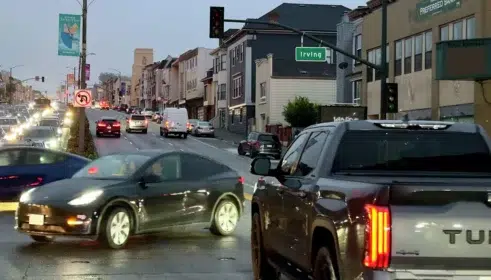In just over a decade, East London has transformed from a gritty urban district into one of the most dynamic and influential technology ecosystems in the world. Known colloquially as “Silicon Roundabout,” this once-overlooked corner of the British capital now plays a central role in driving the UK’s digital economy. As startups evolve into scale-ups, and scale-ups into global enterprises, East London’s tech scene has matured, diversified, and internationalised—proving itself a formidable force on the global stage.
This article traces the journey of East London’s tech scene, from its humble beginnings near Old Street to its current status as a magnet for entrepreneurs, investors, and innovators from around the world.
The Origins: Birth of Silicon Roundabout
The term “Silicon Roundabout” was coined in 2008 by Matt Biddulph, co-founder of Dopplr, to describe the growing cluster of web startups around the Old Street roundabout. At the time, this nickname was both ironic and aspirational, drawing a playful comparison to Silicon Valley.
What started as a handful of creative digital agencies and early-stage tech firms operating out of co-working spaces and converted warehouses soon began attracting serious attention. Affordable rents, proximity to the financial district, and a growing network of like-minded entrepreneurs created a fertile environment for innovation.
Government Support and Tech City UK
The turning point came in 2010, when then-Prime Minister David Cameron launched Tech City UK. This government initiative aimed to nurture the nascent startup ecosystem and position London as a global digital capital. By offering support for startups, facilitating access to funding, and attracting international tech giants such as Google and Amazon, the programme supercharged growth in the area.
Tech City UK also encouraged collaboration between academia, corporates, and government—laying the groundwork for long-term sustainability. Infrastructure improvements, better broadband, and the repurposing of industrial spaces into office hubs helped further anchor the ecosystem.
Rise of the Startup Ecosystem
Between 2011 and 2016, East London experienced explosive growth in startup activity. Accelerators like Seedcamp, Techstars London, and Entrepreneur First began operating in the area, grooming early-stage companies and connecting them with global investors. London’s universities—especially UCL and Imperial College—began to spin out more research-driven startups, particularly in AI, healthtech, and fintech.
By 2017, East London had evolved from a creative digital enclave into a full-fledged tech cluster. The focus had expanded from consumer web and media to deep tech, cyber security, fintech, and SaaS. Notable unicorns like TransferWise (now Wise), Revolut, and Deliveroo emerged during this period, many with roots or significant operations in East London.
International Attention and Influx of Capital
As the ecosystem matured, it began attracting global capital. Venture capital firms from the U.S., Europe, and Asia opened offices in London, while local funds like Balderton Capital, Index Ventures, and LocalGlobe played leading roles in seeding and scaling companies.
London’s position as a financial hub also gave startups a unique advantage. Fintech, in particular, flourished thanks to the city’s proximity to traditional finance institutions, progressive regulation via the FCA’s sandbox, and a talent pool steeped in both finance and engineering.
Impact of Brexit and COVID-19
Brexit brought uncertainty, particularly around immigration and funding. Many feared London would lose its appeal as a tech destination. However, East London’s startup scene proved remarkably resilient. Despite changes to visa policies and EU funding programmes, the UK government introduced the Global Talent Visa and expanded R&D tax relief to keep the ecosystem attractive.
The COVID-19 pandemic disrupted operations but also accelerated digital transformation. Remote work and digitisation sparked demand for startups in edtech, healthtech, and collaboration tools. London-based startups like Hopin, Cleo, and Zego capitalised on these trends, raising significant rounds during the pandemic.
The New East London: Beyond Old Street
While Old Street remains symbolic of London’s tech renaissance, the startup scene has sprawled well beyond the Roundabout. Neighbourhoods such as Shoreditch, Hackney, and Bethnal Green have become key nodes in the tech network, offering diverse spaces and communities.
In recent years, innovation hubs such as Here East (in the Queen Elizabeth Olympic Park) and Plexal have emerged, focusing on frontier technologies like cybersecurity, mobility, and AI. These hubs integrate startups, academia, corporates, and government, creating a hybrid model of open innovation.
Key Sectors Driving Growth
1. Fintech:
London is now considered the fintech capital of Europe. East London startups have pioneered digital banking, payments, and financial wellness. Companies like Monzo, Starling Bank, and Curve continue to set industry benchmarks.
2. AI & Data Science:
With access to academic talent and research institutions, East London has seen a surge in AI startups in natural language processing, computer vision, and predictive analytics.
3. Healthtech:
Post-pandemic, healthtech has emerged as a key sector. Startups are building solutions in digital diagnostics, telemedicine, and mental health. The NHS has shown increasing openness to collaborating with tech companies, speeding up adoption.
4. Sustainability & CleanTech:
Startups like Bulb Energy (before its acquisition), and newer ventures focused on carbon capture and circular economy solutions, reflect the area’s pivot to sustainability.
Diversity and Inclusion: A Work in Progress
East London’s multiculturalism is one of its strengths, but challenges remain in achieving true inclusion across gender, ethnicity, and socioeconomic backgrounds. Numerous initiatives, such as ColorinTech, Tech Nation’s Diversity & Inclusion Toolkit, and OneTech, are working to close these gaps.
Efforts to improve funding access for underrepresented founders and create more equitable pathways into tech careers are ongoing. Co-working spaces and community accelerators now often include mentorship and support structures aimed at marginalised groups.
The Next Frontier: Becoming a Global Powerhouse
With over 85 unicorns founded in the UK as of 2025—many from East London—the region is no longer seen as a junior counterpart to Silicon Valley. The focus now is on scale. Challenges such as talent retention, navigating global regulations, and exit opportunities remain, but London is increasingly seen as a credible launching pad for global expansion.
New infrastructure projects, cross-border startup collaborations, and a more mature investor ecosystem all point toward continued momentum.
Conclusion
From a scrappy circle of developers around a roundabout to a thriving, diversified innovation hub, East London’s journey is nothing short of remarkable. It is a story of creativity meeting capital, policy supporting innovation, and community forging opportunity.
As the ecosystem continues to evolve, it offers not just a template for urban innovation but a vision for the future of global entrepreneurship—diverse, connected, and impact-driven.











